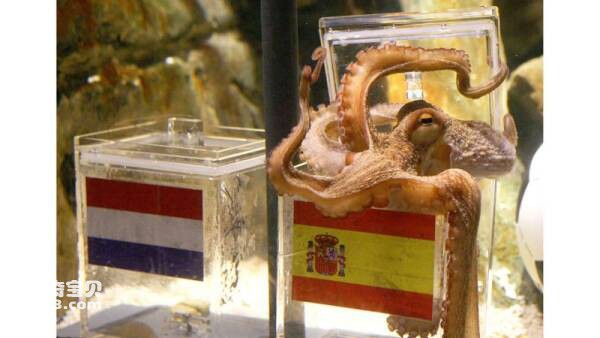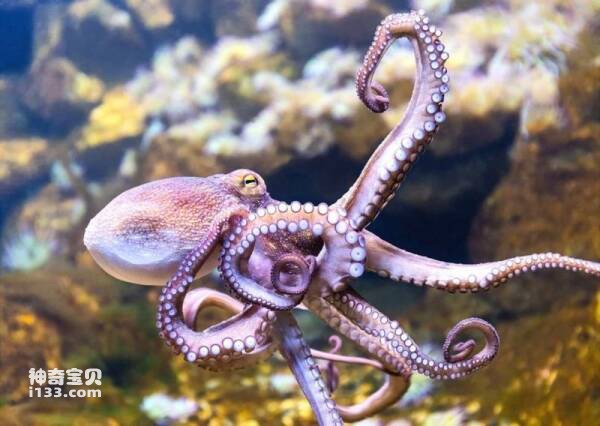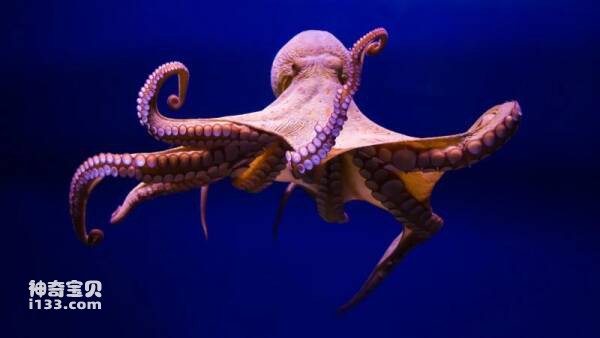There is growing evidence that octopuses and other similar creatures are sentient. Heather Browning, a postdoctoral fellow in animal perception and welfare at the London School of Economics, noted in an article that “octopus minds may be very different from human minds, but only by trying to understand their Only by looking at the world from this perspective can we find out what is good for them and thus ensure their welfare." Browning is working on a project at the London School of Economics and Political Science on the basis of animal perception. His team is trying to answer the question of whether octopuses are conscious. An impactful report was produced.

Octopuses are genius escape artists and can open the lid of a container from the inside
One approach is to start with what we know about sentient things. "If you get down to it, it makes perfect sense to assume that we are sentient and that other animals are just like us," Browning said. "Then you can look at other animals to see if they share traits with us."
Such as the ability to feel pain - this is what the London School of Economics research team studied in cephalopod mollusks (including octopuses, cuttlefish and squid) and decapod crustaceans (including crabs, crayfish, lobsters, prawns and shrimps) focus of the report. Browning and her colleagues reviewed more than 300 scientific papers and came up with eight criteria for animals to feel pain:
1. Have pain receptors (receptors that sense harmful stimuli, such as temperatures that are so hot that they cause burns or cuts)
2. The part of the brain that integrates sensory information
3. Have connections between pain receptors and brain integration areas
4. Reaction to the influence of local anesthesia or analgesics
5. The motivational trade-off mechanism of taking threatening measures to balance the power of action in order to obtain rewards.
6. Flexible self-protective behaviors in response to harm and threats
7. Associative learning that transcends habituation and sensitization
8. Behavior that shows animals value local anesthesia or analgesia when injured

Animals can meet the criteria with high, moderate, or low confidence, depending on whether the study is conclusive or inconclusive. Browning and her colleagues believe that if an animal meets seven or more criteria, there is "very strong" evidence that the animal is sentient. If five or more high levels of confidence are met, there is "strong evidence" of sentience, and so on.
From this measurement, Browning and her colleagues concluded that there is no doubt that octopuses can feel pain and are therefore sentient. Octopus met all criteria except high or very high levels of confidence, and a medium level of confidence. They scored the highest of all the organisms studied, even higher than their cousin the cuttlefish. Cuttlefish are thought to be more intelligent. (Browning noted, however, that besides octopuses, squid and other cephalopods have been studied far less, which affected their scores.)
The report was used as evidence for amendments to the UK's Animal Welfare (Sentience) Bill, which would recognize sentience in cephalopod molluscs and decapod crustaceans.

"I think it's a good thing because octopuses and crustaceans are getting a new kind of animal rights recognition in the UK," Godfrey-Smith said.
The ability to feel pain is just one of many aspects of consciousness—along with the ability to feel pleasure, to feel bored or interested, to experience companionship, and many more. As research continues, scientists may be able to design similar scales to measure more different aspects of animal consciousness.
animal tags: octopus squid crustacean cuttlefish decapod perception
We created this article in conjunction with AI technology, then made sure it was fact-checked and edited by a Animals Top editor.